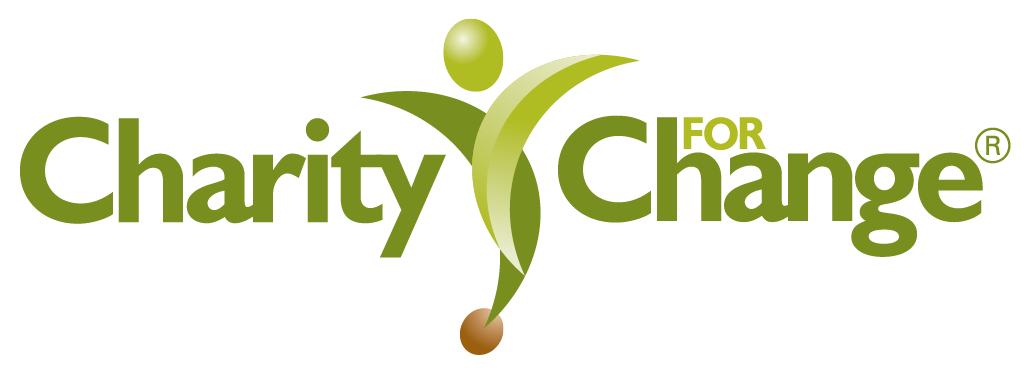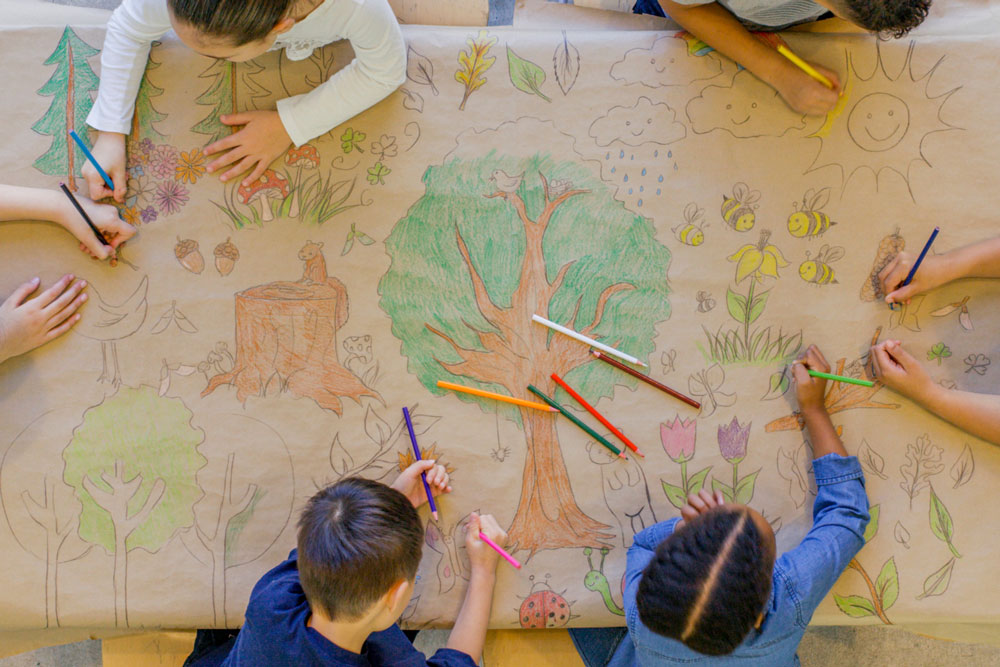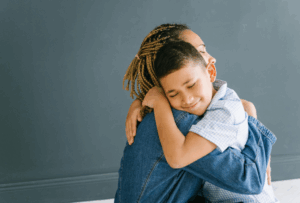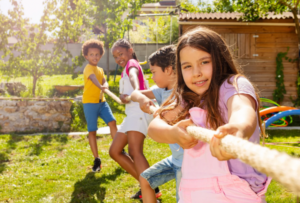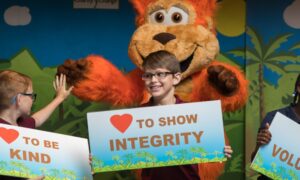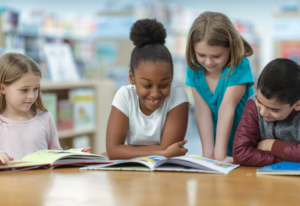By Karen Conley, President, CEO and founder of Charity for Change
Each day, we are putting our cooperative skills to work. Whether at work, home, with friends or loved ones, we practice cooperation whenever we balance our needs with someone else’s. True cooperation is a give-and-take between two or more people to reach a common goal that everyone can mutually agree on to achieve a mutual benefit. Cooperation is not to be confused with compliance which is doing exactly what one person wants despite another person’s wants or needs.
Cooperation is a learned social skill, and we can begin teaching children early. Practicing the art of cooperation can help kids develop other critical social skills, including:
- Compassion
- Patience
- Respect
- Communication
- Perspective
- Tolerance
- Compromise
- Problem-Solving
- Sportsmanship
However, cooperation is a complex, multifaceted skill. Breaking it up into smaller steps and actions makes teaching this essential skill manageable and easily support children as they grow.
Step 1: Back-and-Forth Interactions
As stated above, cooperation is a give-and-take practice. Babies as young as six to nine months can learn this rhythm by taking turns. For example, a parent can sit down on the floor with their child and roll a ball to them, then have the toddler roll the ball back, and so forth. Or if two children want to play with a toy, help them take turns with it – also known as sharing.
Helping children practice taking turns and sharing will help them build trust, exercise kindness, and pave the way to healthier relationships at home, school, and with other children.
Step 2: Give Choices While Maintaining the Rules
When children understand the reasons for rules and expectations in situations, they can better develop cooperative skills and not rebel against requests. Typically, children as young as two can understand simple reasoning: “don’t touch the stove because it is hot, and you will get burned, and it will hurt.”
Also, children are learning to be more independent around the age of two. You can encourage their individuality and empower them by asking for their ideas and suggestions while staying within the parameters of established rules. For instance, you can say, “It’s raining, so we have to stay inside today. What do you think we should do?” Or “The sun can burn our skin. Do you want help putting on sunscreen, or do you want to do it yourself?”
Letting children feel like they have a choice fosters their self-sufficiency, helps them feel in control and shows them that you respect their thoughts and ideas.
Step 3: Working Together
Cooperation is often synonymous with teamwork and collaboration. Children as young as three are beginning to learn how to solve problems and ask for help. Working with children to accomplish a task demonstrates how to interact effectively and respectfully with others, make compromises, and share responsibility. It also helps them understand what it is like to be an important part of something bigger than themselves. This can happen at home by sharing the chores around the house or what to have for dinner. Group projects at school or games on the playground also cultivate the skills of problem-solving, listening, and patience as children work and play together for a common purpose.
Cooperation is a Continuous Journey
Cooperation is an intricate skill linked to other core skills like listening and thoughtfulness. A child’s cooperative skills do not have to be perfect before giving them praise. Giving children positive reinforcement for their efforts will help them grow while supporting them with the skills they are struggling with, like patience, will aid their development.
By learning cooperation, children will have increased empathy and compassion, a strong sense of belonging, and the confidence to share their ideas. And when we can cooperate effectively with one another, it makes us more successful, promotes self-improvement, fosters diversity, inspires healthy competition, and boosts creativity and innovation. Which does not just make us better humans but helps makes our relationships, communities, and world stronger.
About the Author
Karen Conley is President, CEO and founder of Charity for Change, a non-profit social-emotional learning educational organization funded by philanthropy. For information, visit charityforchange.org.
